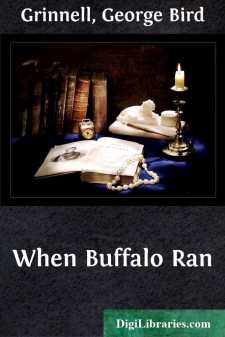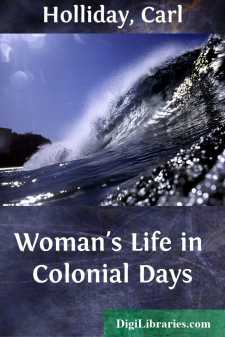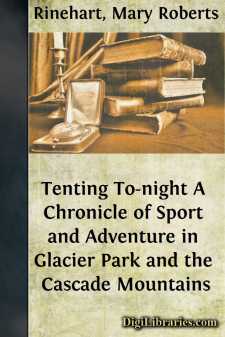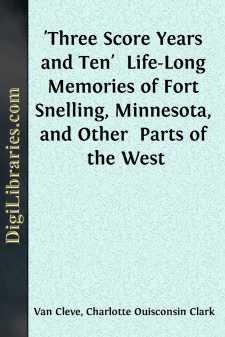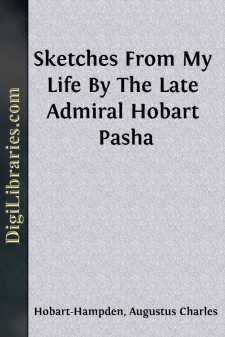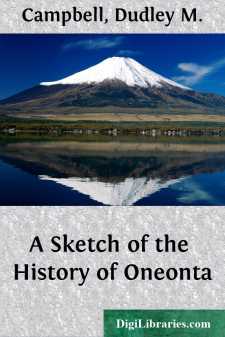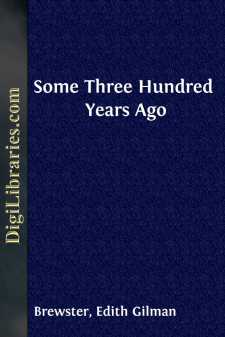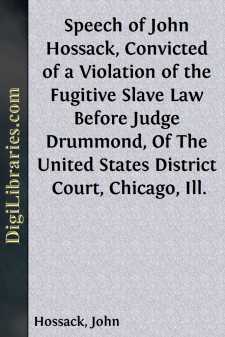History
- Africa 30
- Americas (North Central South West Indies) 50
- Ancient 68
- Asia 58
- Australia & New Zealand 8
- Canada 41
- Caribbean & West Indies 1
- Civilization 20
- Eastern Europe 12
- Europe 310
- Expeditions & Discoveries 60
- General 77
- Historical Geography 1
- Jewish 9
- Latin America 3
- Medieval 8
- Middle East 13
- Military 248
- Revolutionary 8
- Study & Teaching 5
- United States
- Western Europe 56
- World 13
United States Books
Sort by:
The Plains Country. Seventy years ago, when some of the events here recounted took place, Indians were Indians, and the plains were the plains indeed. Those plains stretched out in limitless rolling swells of prairie until they met the blue sky that on every hand bent down to touch them. In spring brightly green, and spangled with wild flowers, by midsummer this prairie had grown sere and yellow....
more...
by:
Carl Holliday
CHAPTER I I. The Spirit of Woman With what a valiant and unyielding spirit our forefathers met the unspeakable hardships of the first days of American colonization! We of these softer and more abundant times can never quite comprehend what distress, what positive suffering those bold souls of the seventeenth century endured to establish a new people among the nations of the world. The very voyage from...
more...
by:
Montague Glass
POTASH AND PERLMUTTER DISCUSS THE CZAR BUSINESS Like the human-hair business and the green-goods business it is not what it used to be. "Yes, Abe," Morris Perlmutter said to his partner, Abe Potash, as they sat in their office one morning in September, "the English language is practically a brand-new article since the time when I used to went to night school. In them days when a feller says...
more...
THE TRAIL The trail is narrow—often but the width of the pony's feet, a tiny path that leads on and on. It is always ahead, sometimes bold and wide, as when it leads the way through the forest; often narrow, as when it hugs the sides of the precipice; sometimes even hiding for a time in river bottom or swamp, or covered by the débris of last winter's avalanche. Sometimes it picks its...
more...
CHAPTER I. One evening long ago, when this wonderful century, now in a vigorous old age, had just passed its nineteenth birthday, in a bright, cheerful sitting-room in the good old city of Hartford, Conn., sat a fair young matron beside a cradle in which lay sleeping a beautiful boy a year and a half old. The gentle motion of her little slippered foot on the rocker, keeping time with the soft humming...
more...
CHAPTER I. In perusing the following pages, the reader will learn the history of a class of men, who, for talent, cannot be excelled. He may startle at the horrid features which naked truth will depict—at deeds of darkness which, though presented to an enlightened people, may require a stretch of credulity to believe were ever perpetrated in the glorious nineteenth century. It will, no doubt, elicit...
more...
CHAPTER I. A ROUGH START IN LIFE. To attempt to write and publish sketches of my somewhat eventful career is an act that, I fear, entails the risk of making enemies of some with whom I have come in contact. But I have arrived at that time of life when, while respecting, as I do, public opinion, I have hardened somewhat into indifference of censure. I will, however, endeavour to write as far as lies in...
more...
CHAPTER I. The territory comprised within the present boundaries of the town of Oneonta, previous to the war of the Revolution, was little known except as the scene of many a sanguinary conflict between different Indian tribes which contended with each other for its possession. The Delawares, whose home was on the river bearing their name, had been in peaceful possession of the upper Susquehanna valley...
more...
NONOWIT'S HOME Long before New Hampshire found its name, the deep river at its southeast was known as the Piscataqua by the Indians who could stem its strong currents, even in bark canoes. Perhaps it was because of the fresh spring close to its salty shores, some three miles from the sea, that the red men made their encampment on the spot that was later equally attractive to men of white skins....
more...
by:
John Hossack
SPEECH OF JOHN HOSSACK. [At the February term of the U.S. District Court for the Northern District of Illinois, JOHN HOSSACK and JOSEPH STOUT, of Ottawa, were convicted of having aided in rescuing a fugitive slave from the custody of the U.S. Deputy Marshal at Ottawa, Oct. 20, 1859, and sentenced by Judge Drummond to pay a fine of one hundred dollars, and be imprisoned ten days. Mr. HOSSACK is a...
more...


